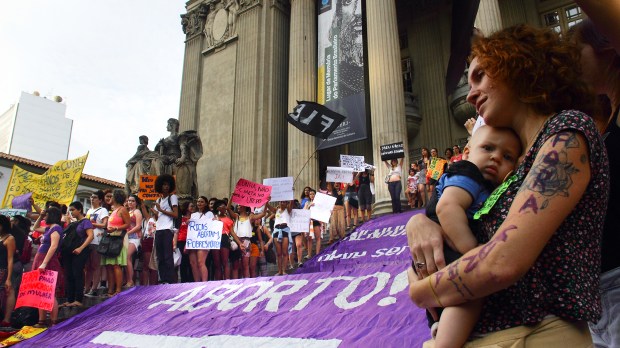Someone once said, “Never let a good crisis go to waste.” In Brazil, advocates of legal abortion have apparently been presented with a crisis.
Legal scholars in Brasília, the capital, are preparing a case to go before the nation’s highest court, saying pregnant women should be permitted to have abortions when their fetuses are found to have microcephaly, The New York Times reported.
That is the birth defect that has surged in recent months, a result, it is suspected, of the spreading Zika virus. To avoid giving birth to children with microcephaly, or abnormally small heads, some governments have suggested that women may want to postpone pregnancy until the public health problem is resolved.
“A judge in central Brazil has taken the rare step of publicly proclaiming that he will allow women to have legal abortions in cases of microcephaly, preparing the way for a fight over the issue in parts of the country’s labyrinthine legal system,” The Times writes.
And here in Recife, the Brazilian city hit hardest by the increase in microcephaly and the brain damage that often comes with it, abortion rights activists are seizing on the crisis to counter conservative lawmakers who have long wanted to make Brazil’s abortion laws — already among the most stringent in Latin America — more restrictive.
In Brazil, abortions are allowed only in cases of rape, anencephaly or when the mother’s life is in danger.
“Nothing justifies an abortion,” the Rev. Luciano Brito, a spokesman for the Catholic Archdiocese of Olinda and Recife, told reporters.
In Colombia, meanwhile, the Bishop of Pereira, the Most Rev. Rigoberto Corredor Bermúdez, commented, “Abortion is not a solution to the virus.”
Catholic Relief Services, the US bishops’ international relief agency, said in a statement that it “shares the world’s concern about the rapid spread of the Zika virus in the Americas, a mosquito-borne virus that is especially threatening to newborns. The World Health Organization has announced it will mobilize resources to curb the rapid spread of Zika, including aggressive mosquito control, active surveillance, accelerated vaccine research and travel advisories for pregnant women.”
“Catholic Relief Services, which has a strong presence in Latin America through agriculture, education and peace-building programs, stands poised to respond if and when we are called upon to do so by host governments or our Catholic partners,” the agency stated.
Malteser International, the relief agency of the Order of Malta, this week began working in the Colombian departments of La Guajira and Magdalena against the spread of the virus. The areas are “severely impoverished [and] facilities for treating the disease are extremely rare,” the agency said in a statement. “At the moment, we are working on preventing the spread of the virus by informing the population, and we will be providing families — especially those including pregnant women — with prevention kits including mosquito nets, repellent and insecticide.”
Adding to the problem is that there is a drought in the region. “The drought has left a lot of rivers here just stagnant water, and this means that a lot of people are storing water in uncovered containers in their homes,” said Jelena Kaifenheim, Malteser International’s Latin America Coordinator. “A vase of flowers, a glass of water on the bedside table, even a toilet cistern can all be a danger, and we have produced flyers and informational material to make people aware of the risks. The drought means that providing fumigation on a village level is crucial to protect communities from the spread of the virus.”

